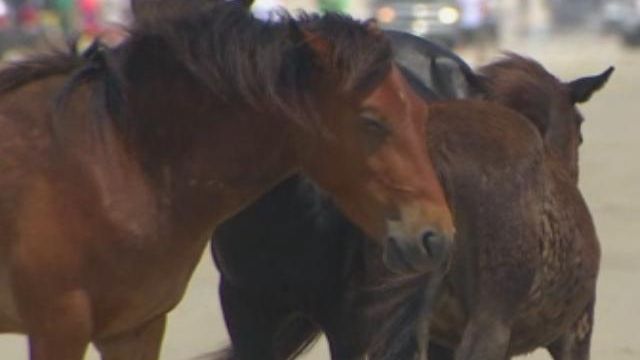Corolla Wild Horses Face Uncertain Future
Spanish Mustangs have survived on the Outer Banks for nearly 500 years. Now, they face their toughest hurdle -- tourists.
Posted — Updated“I just want to give you some information about the horses,” Rogers told a group of tourists. “You have to stay at least 50 feet away at all times and not feed them."
"Most of the folks who come here don’t know the rules," Rogers said.
Karen McCalpin, who runs the Corolla Wild Horse Fund, the group charged by the county to oversee and protect the horses, said the animals do not belong to anybody.
“They’re nobody’s horses,” she said. “They don’t belong to the Corolla Wild Horse Fund. They don’t belong to the county.”
McCalpin routinely has to remove injured horses from the herd. The injuries are often caused by humans.
“There are about 300 houses in that area, but there are 3,080 platted lots.” McCalpin said. “And certainly if all those were to be built out, I don’t know how long people and wild horses can co-exist. Probably not another five centuries unless we do more careful thinking about how we develop the rest of the other banks.”
Rogers and McCalpin want to see horses, houses and humans all get along. They are glad to see people admiring the horses, but they do not want to see people love them to death.
The Corolla Wild Horse Fund has begun DNA testing of the horses to help better manage breeding and lineage. They are also thinning the herd through an adoption program, hoping to help the breed survive.
Currituck County commissioners are considering denying a request for $75,000 made by the Corolla Wild Horse Fund to take care of the herd. Commissioners said the group never repaid an prior $85,000 loan.
The Corolla Wild Horse Fund said it will be hard to continue without the money because $75,000 is about one-third of the group's budget.
• Credits
Copyright 2024 by Capitol Broadcasting Company. All rights reserved. This material may not be published, broadcast, rewritten or redistributed.





